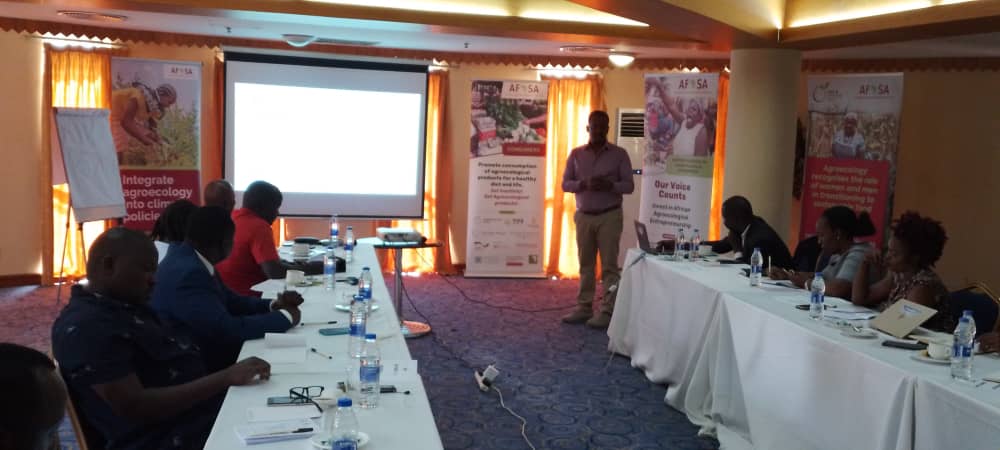AFSA roots for model law on food sovereignty in Africa

Africa needs to close ranks and quickly develop a home-grown food policy and a model law on food sovereignty and safety; in the face of the amplified threat posed by the productivism narrative, which is rapidly gaining traction within African policy circles.
Contrary to food security, the Alliance for Food Sovereignty in Africa AFSA(an Africa-wide network bringing together small-scale farmers, pastoralists, fisherfolk, and indigenous people among others), sees the potential loss of food sovereignty to an externally-driven agro-industrial complex, as the biggest existential threat to farmers and livelihoods in Africa today.
Speaking during a high-level strategic meeting of stakeholders in Kampala February 24, Mr. Million Belay, AFSA’s general coordinator, said a continuing narrative that sees industrial scale agriculture as the answer to falling food productivity in Africa through technologies such as GMO and commodification of seeds around a few varieties at the expense of diversity, was fundamentally flawed and posed greater risk to African livelihoods across the cultural, nutrition and environmental dimensions.
“The narrative has been that because of the climate emergency, decline in soil fertility and food yields, Africa needs GMO technology and we must commodify seeds around a few varieties that can assure food security. This is embedded with risk to farmer-controlled seed systems and there is a worrying focus on control of the food system. We say that food is not just quantity but it should be whole, heathy, nutritious, safe and sustainable,” Belay told the gathering of representatives from the Ugandan Parliament, the East African Legislative Assembly (EALA) and the Pan-African Parliament (PAP).
Legislators at national, regional and continental level, need to agitate for the formulation of national and supra-national laws and policies on food that take a more holistic approach to food taking into account the benefits of agroecology, farmer-controlled seed systems, culture, gender and human rights, Belay said.
He added that commercialization of food was leading to loss of diversity. Instead of food fortification as advanced by the school of thought that believes food is just nutrients, the focus of African food policy should be on producing diverse varieties of food that are culturally acceptable to African consumers.
In remarks during the meeting, Ugandan legislator Dr. James Nsaba Buturo observed that Africa had for long been at the receiving end of systems it has no controls over and which are designed to keep it in bondage. Food was the last line of defence left in the struggle for self-emancipation and it must be taken seriously.
“If we don’t fix this problem of food, we are going to be in much bigger trouble than we can imagine. It is the last line of defence we have as Africans,” he said.

 New leadership for bankers’ umbrella as total assets top $12 billion
New leadership for bankers’ umbrella as total assets top $12 billion
 Brussels Airlines to announce Nairobi service
Brussels Airlines to announce Nairobi service
 SITA promises enhanced travel experience after Materna acquisition
SITA promises enhanced travel experience after Materna acquisition
 Saudia’s 105 aircraft order stretches A320neo lead over rival Max
Saudia’s 105 aircraft order stretches A320neo lead over rival Max
 Kenya calls for speedy resolution of territorial and immigration disputes with Uganda at JMC
Kenya calls for speedy resolution of territorial and immigration disputes with Uganda at JMC
 Boeing refuses to pay hackers $200 million for stolen Data
Boeing refuses to pay hackers $200 million for stolen Data
